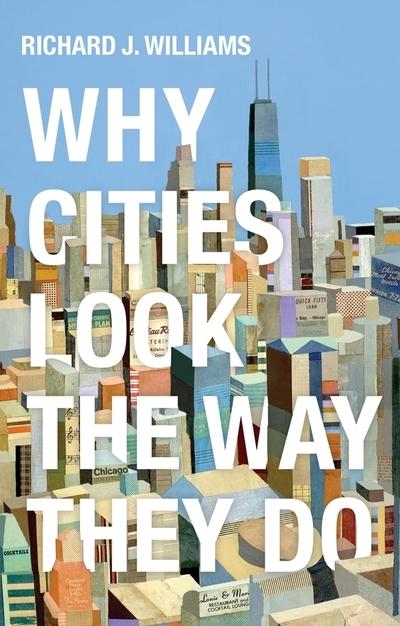Why cities look the way they do
- ISBN: 9780745691817
- Editorial: Polity Press
- Fecha de la edición: 2019
- Lugar de la edición: Cambridge. Reino Unido
- Encuadernación: Rústica
- Medidas: 23 cm
- Nº Pág.: 192
- Idiomas: Inglés

We tend to think cities look the way they do because of the conscious work of architects, planners and builders. But what if the look of cities had less to do with design, and more to do with social, cultural, financial and political processes, and the way ordinary citizens interact with them? What if the city is a process as much as a design? Richard J. Williams takes the moment construction is finished as a beginning, tracing the myriad processes that produce the look of the contemporary global city.
This book is the story of dramatic but unforeseen urban sights: how financial capital spawns empty towering skyscrapers and hollowed-out ghettoes; how the zoning of once-illicit sexual practices in marginal areas of the city results in the reinvention of culturally vibrant gay villages; how abandoned factories have been repurposed as creative hubs in a precarious postindustrial economy. It is also the story of how popular urban clichés and the fictional portrayal of cities powerfully shape the way we read and see the bricks, concrete and glass that surround us.
‘Why Cities Look the Way They Do is a great read. It’s comfortable in voice but provocative in uncovering harsh truths and filled with fascinating visuals. To walk the city and travel the world with Williams is to journey to the brutal core of the power of image and to understand its sway over bodies and minds.’
Sharon Zukin, author of Naked City: The Death and Life of Authentic Urban Places
‘Using our eyes to understand the social and psychological DNA of cities is the refreshing and important contribution of Richard J. Williams’s new book. Read it and look around you with heightened vision!’
Richard Burdett, London School of Economics and Political Science
“Williams is an affable guide, breezy and smart. And brave. ‘I hate Venice,’ he declares in the first sentence.”
The Spectator
1. Introduction
2. Money
3. Power
4. Sex
5. Work
6. War
7. Culture
8. Conclusion






